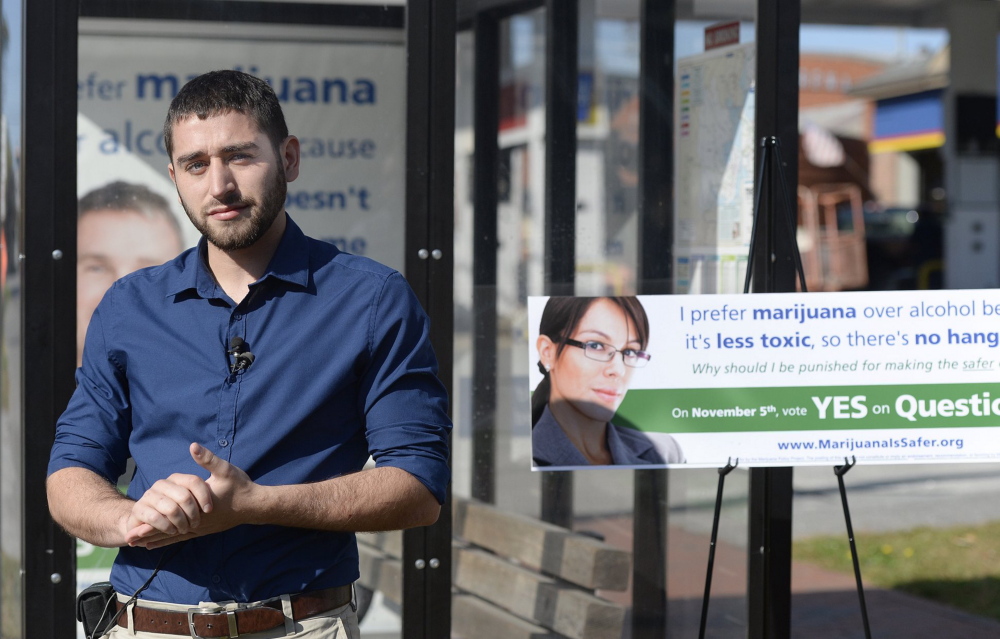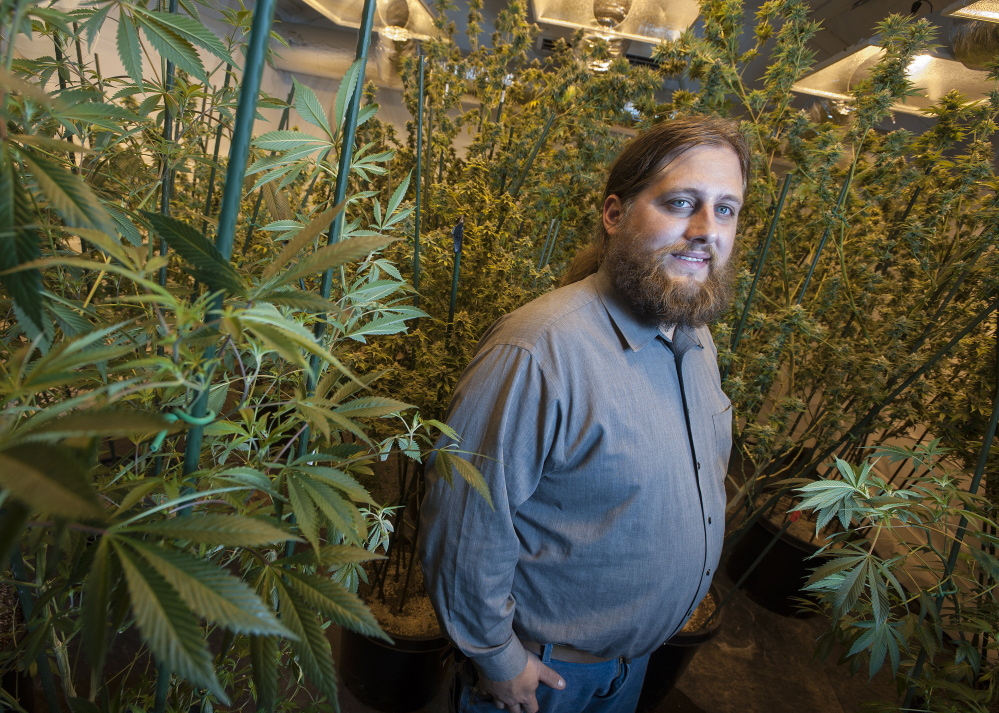AUGUSTA — The group with national clout in Maine’s marijuana legalization battle has an early money lead over advocates for a rival proposal, but almost all of that money came from one backer.
The Committee to Regulate Marijuana Like Alcohol in Maine says it raised more than $50,000 between January and the end of March, said David Boyer, who is leading that group as Maine political director for the Marijuana Policy Project. That’s well ahead of the $30,000 raised by Legalize Maine.
But Boyer said $50,000 of the money raised was from the Marijuana Policy Project, a national group that has backed legalization efforts in other states. Legalize Maine, which is pushing a plan it says is designed to stimulate Maine’s rural economy, got its money through contributions of $5,000 or less from Maine residents and businesses.
It’s the first real look at the finances for the committees, which must submit more than 61,000 signatures to the state by Feb. 1, 2016, to get their dueling plans on that year’s election ballot. The filings for the first quarter of 2015 aren’t due to the Maine Commission on Governmental Ethics and Election Practices until Friday, but Boyer answered questions about his filing Monday, when Paul McCarrier, president of Legalize Maine, also shared his filing.
“Until we see their campaign finance report, we can’t make a judgment,” McCarrier said of Boyer’s group. “But we know that Mainers are sick and tired of seeing big money from D.C. coming up and polluting our politics.”
But Boyer said his group’s money came “from people all over this country and Maine that want to see marijuana prohibition ended and replaced.”
“Ultimately, it’s going to be Maine voters that sign our petition and Maine voters that pass it, so I think that’s the important thing,” he said.
Legalize Maine’s plan reserves much of the market for small growers and is more liberal than the Marijuana Policy Project’s proposal in some ways, allowing adults 21 and older to possess unlimited quantities of marijuana in their homes and carry up to 2.5 ounces in public, taxing marijuana at 8 percent. The Marijuana Policy Project’s plan would limit public possession to 1 ounce of marijuana and six plants in homes and places a 10 percent tax on top of Maine’s 5.5 percent sales tax.
Meanwhile, two other efforts sponsored by Democratic state representatives from Portland are making their way through the Legislature. Rep. Mark Dion’s plan, which is backed by medical marijuana dispensary operators, would limit retail stores statewide to 20 and tax marijuana at 15 percent, while details of Rep. Diane Russell’s bill haven’t been released.
The Marijuana Policy Project backed the successful 2012 and 2014 legalization referenda in Colorado and Alaska, respectively. In Colorado, it contributed nearly $1.6 million to the winning campaign, according to the National Institute on Money in State Politics. In Alaska, it contributed $765,000 – nearly 84 percent of the total, according to state finance records – and the campaign spent more than $600,000 on TV and other forms of advertising.
However, Boyer said his committee has been focused on drafting its ballot initiative that rolled out in late March, saying “fundraising hasn’t been a priority” and that it won’t be as reliant on the Marijuana Policy Project going forward.
Legalize Maine’s money came completely from Maine donors, with $12,000 coming from Franklin County. Narrow Gauge Holdings and Home Grown Connection, two Farmington businesses run by Lucas Sirois of Rangeley, gave a total of $7,500 to the effort, while Hight, a General Motors dealership in Farmington, contributed $500.
McCarrier said the group raised $10,000 more than he budgeted for the first period and hopes to raise $300,000 by the end of the campaign. He said his side has good momentum early on.
“I think a lot of it is because people are really excited that there’s an alternative to the D.C. group,” he said.
Send questions/comments to the editors.



